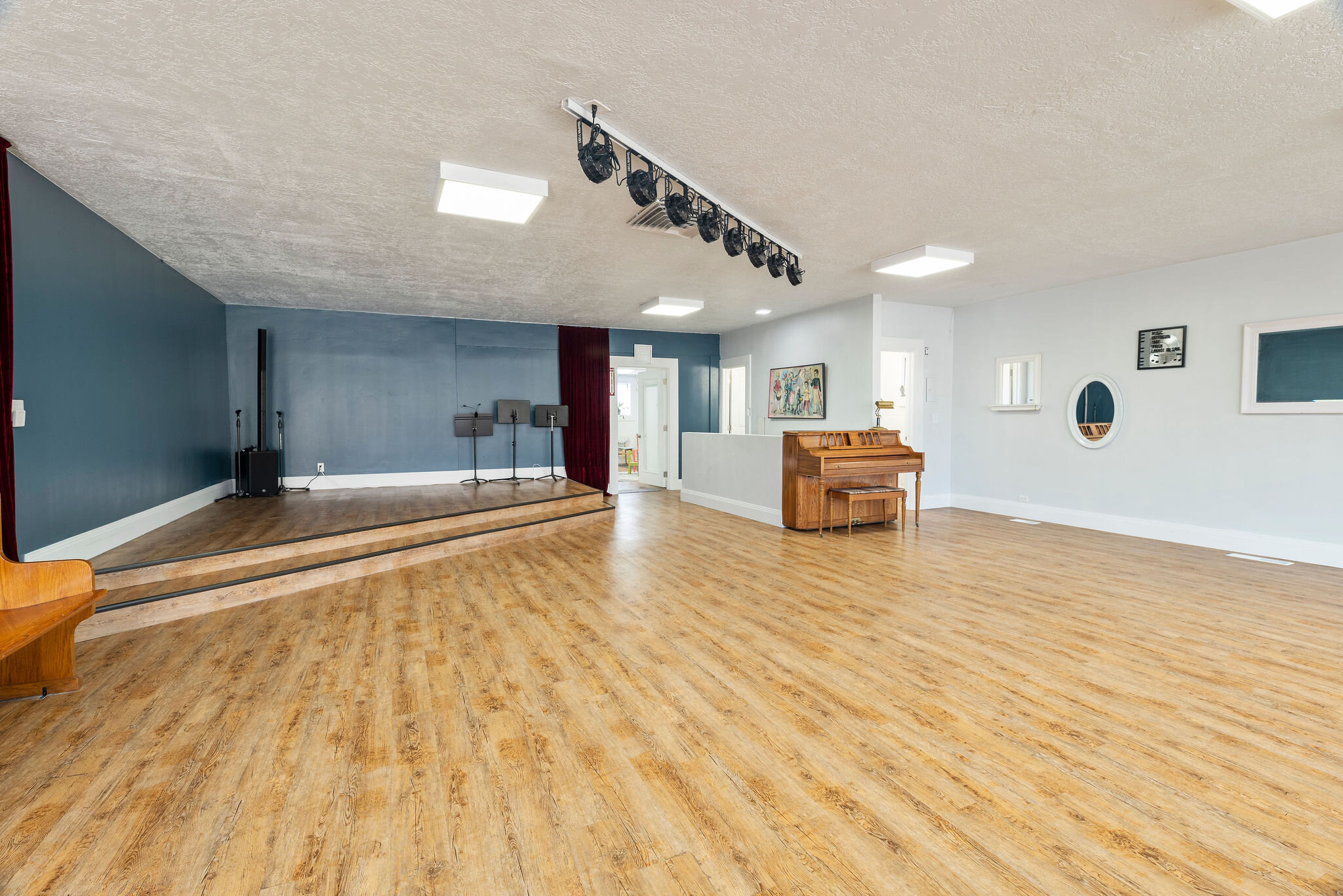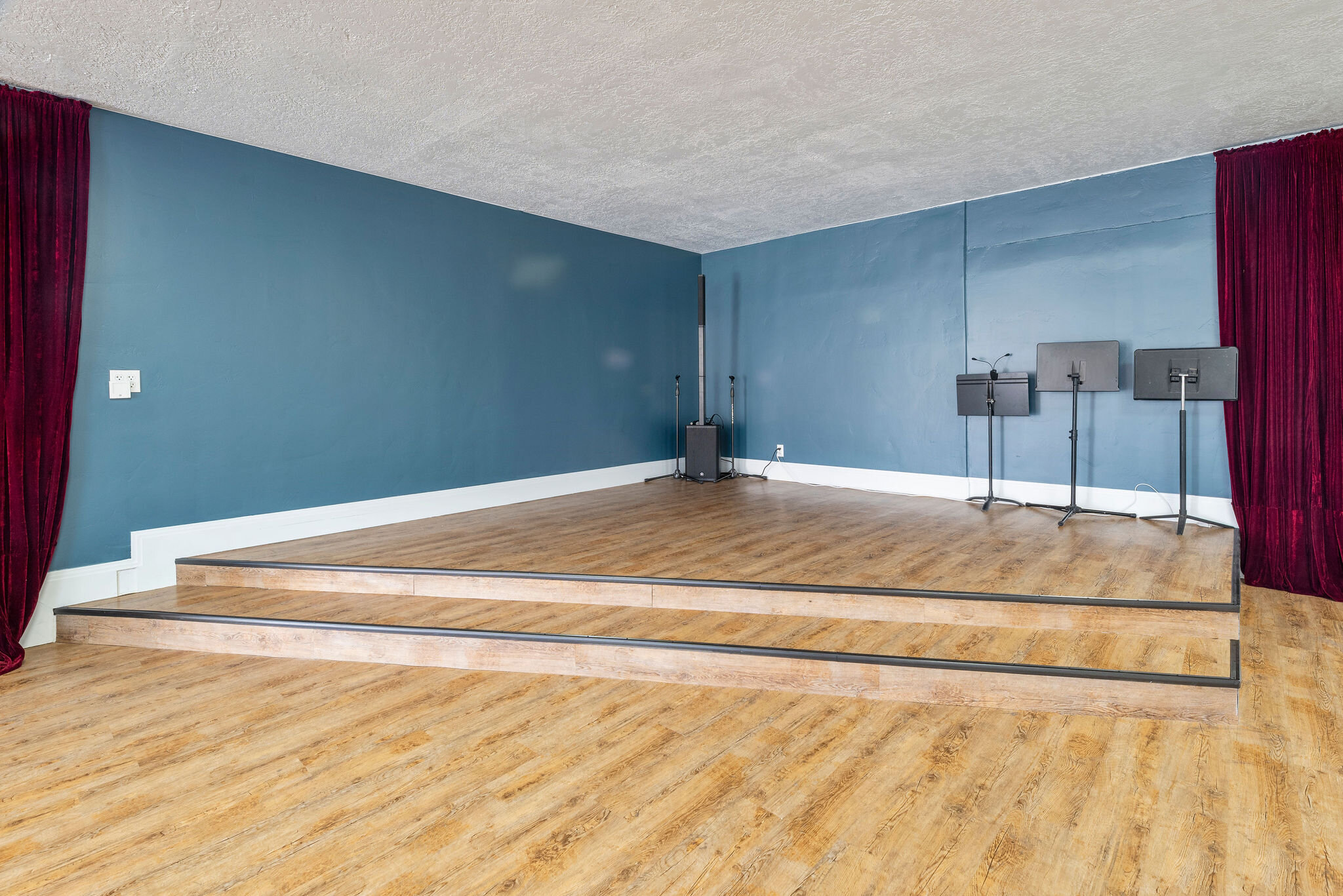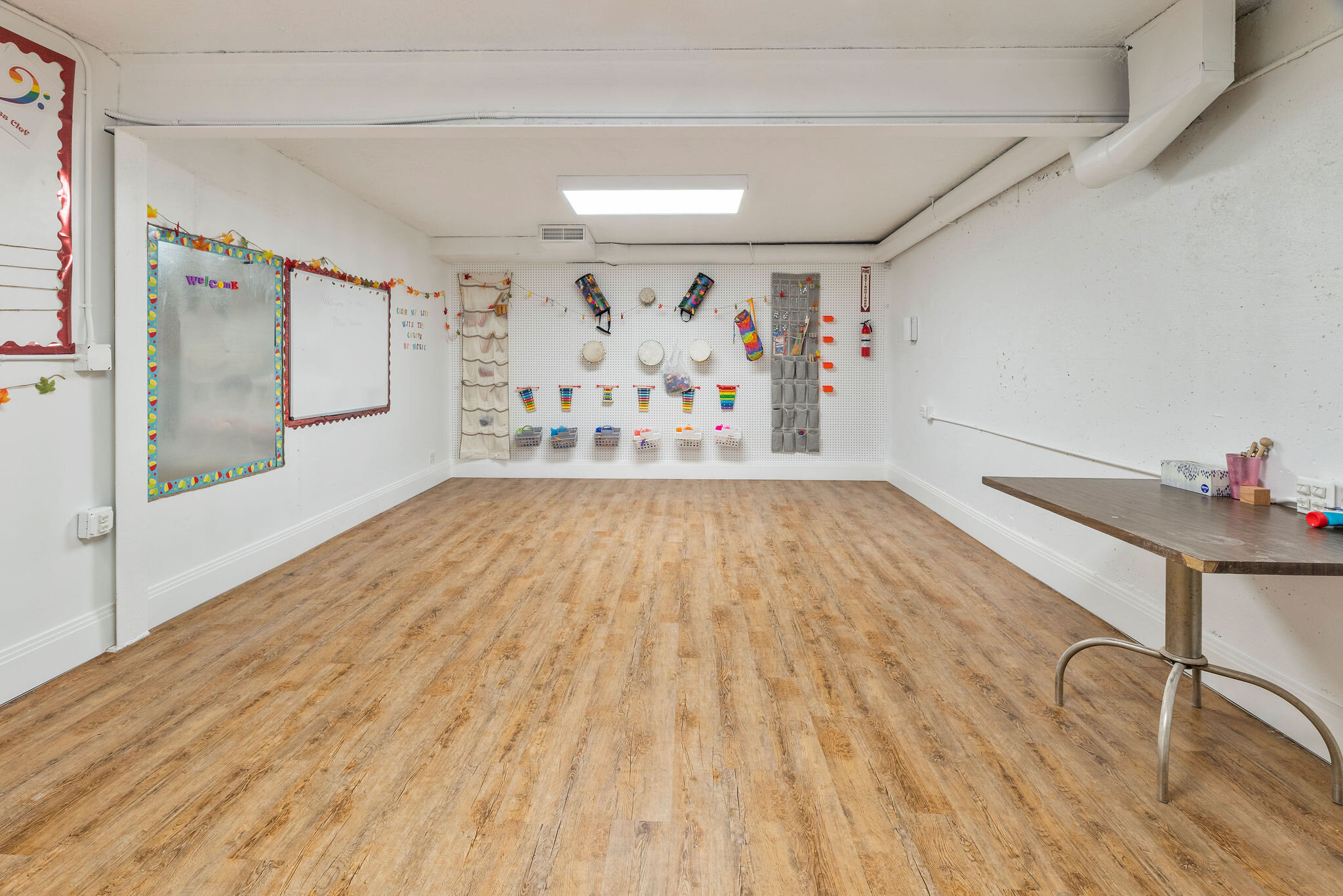About
Johnson Arts Center
A space for art of all kinds.
The Blaine H. and Loa M. Johnson Center for Community Arts and Education (Johnson Arts Center or JAC) provides a gathering place for artists of all kinds to create, learn, teach, mentor, collaborate, and build community.
The Johnson Arts Center is named after Dr. Blaine Hart Johnson (1915-2005), a beloved art educator that spent his life performing, organizing institutional and community choirs, and educating thousands, young and old, in the choral arts. Most notably, Dr. Johnson inspired individuals that they could not only be touched by art performed by others, but they had it within them to “find their voice” to produce art that would touch and inspire.
Blaine Hart and Loa Claire Mathews Johnson
Blaine Hart Johnson was born on June 8, 1915, the oldest of eleven children, and grew up singing in the 4th Ward choir in Spanish Fork, Utah. His musical career began as a young teenager when he was asked to be the chorister for the MIA in the 4th Ward. Blaine and his sister Norma, who had a beautiful alto voice, were often heard singing in funerals all over the county. As a young man, Blaine sang solos at many public functions–banquets, celebrations, and church services–including programs at the annual Iceland Day and the Spanish Fork Fourth of July celebrations. All of these performances gave him great opportunities to develop as a singer.
At Spanish Fork High School, Blaine had an innovator as a music teacher in Ferry J. Faux, who encouraged his students to write original operettas. Blaine worked with other students to write and perform in several such productions, including “Mayan Gold,” a show that was performed at BYU and also at the Utah Education Association convention in Salt Lake City.
In January 1933, Blaine entered BYU and a new stage in his love and understanding of choral music. He never forgot the thrill of singing in the college choir the first time and especially of performing Handel’s Messiah at Christmas. In his words, “It was here that country boys and girls learned the true meaning and majesty of the great compositions. We learned how our entire body and mind had to enter into the singing process, a concept which was to be my most valuable asset as I took leadership of such events later on.”
During the year 1938-39, Blaine was given the award of Vocalist of the Year at BYU. He graduated in the spring of 1939 and began graduate work in 1940. He also joined the National Guard that year and was inducted into the US Army in March 1941.
Loa Claire Mathews was born in Pocatello, Idaho, on May 20, 1918. At a very young age, Loa wanted to play the piano. She began taking lessons from her mother, and by the age of 12 she was teaching piano lessons herself, receiving 22 cents per lesson.
By the time Loa entered junior high school, she was studying with Adelaide Anderson, a fine teacher who produced many outstanding pianists in the intermountain area. Loa appeared in many recitals, playing the standard works of Chopin, Schumann, Beethoven, and Brahams. She was also accompanying scores of instrumentalists and singers (which she did throughout her life). Most significantly, she won the best of the Idaho music contests, taking the top honors at least twice. She and her sister Sybil, who excelled as a violinist, were a musical team that enjoyed much popularity throughout Southeastern Idaho.
Brigham Young University recognized Loa’s and Sybil’s talents by extending musical scholarships for the year 1938-39. Loa became the primary accompanist for the BYU A Cappella Choir, and it was in this choir that Blaine and Loa met for the first time. Blaine was the student director and was deeply impressed by Loa’s beauty and talent. During Messiah rehearsals in the fall of 1938, Blaine conducted part rehearsals many times with Loa at the piano.
Blaine asked Loa to play for his vocal practice, which was an everyday thing. She also played for a male quartet that he sang in, the Cougar Quartet. Loa graduated from BYU in June of 1940, receiving her BA degree in music, with a minor in French and English. That fall, she returned to BYU to get her education degree and took a job the following year, teaching 5th, 6th, and 7th grades at the McKinley School in Salt Lake. Loa and Blaine spent many Sundays together in Spanish Fork, and in March of 1941, Loa saw him off on the train to California with the Spanish Fork National Guard.
During her Easter vacation in 1942, Loa traveled to California to visit Blaine. It was there that they were married, shortly before their three-year separation as he served with his unit on the war front during World War II.
While Blaine was away, Loa continued to study piano, with Mabel BorgJenkins, a noted pianist and teacher at the McCune School of Music in Salt Lake City, and then with Gabriele and Robert Casadesus in New York City. She also studied voice.
Upon his return, Blaine and Loa lived in New York City where he sang professionally in various churches around the city to earn money and continue his graduate studies, this time at Columbia University. They returned to the west in 1948, and Blaine was offered the job as vocal director at Dixie College in St. George, Utah. Loa taught piano lessons. In 1950, the couple moved to Cedar City to teach at Branch Agricultural College. The Korean conflict had broken out, and before Blaine began his teaching responsibilities at the college, he was called up with the 213th Armored Field Artillery Battalion to serve in Korea.
Loa stayed in Cedar City and continued to teach piano lessons. She developed a large piano class, and students came to her from many towns in Southern Utah. She was a very talented teacher as well as friend and mentor to her students. Over her more than 70 years of teaching, many students grew, married, and then sent their children to her, even their grandchildren. She often received expressions of deep love and appreciation for the impact she had on their lives.
After his year of service in Korea, Blaine returned to Cedar City in 1951 and began teaching at the college. He also continued the tradition of producing an opera and the Messiah with his music students each year, with Loa as accompanist during many of the rehearsals. Operatic productions included such works as Rigoletto, Carmen, La Traviata, and Faust. The great oratorios by Verdi, Mozart, and Faure were also performed by Blaine’s choirs. He retired in 1981 after 30 years of service to the College.
Speaking of his career, Blaine said, “I am most grateful that I have loved the work by which I made a living. It has been a work rich in blessings. My work at the college in Cedar City has been a labor of love. The rewards of seeing young people change and grow and become lifelong friends has been most satisfying. Mingling with choice young people in rehearsal was always an uplifting experience that made each day like the dawning of Christmas morning–almost!”
Blaine and Loa are remembered fondly for their major contributions to the musical legacy at the college and in the community of Cedar City over the 30 years that they resided here.
“Art enables us to find ourselves and lose ourselves at the same time.”
— Thomas Merton



















